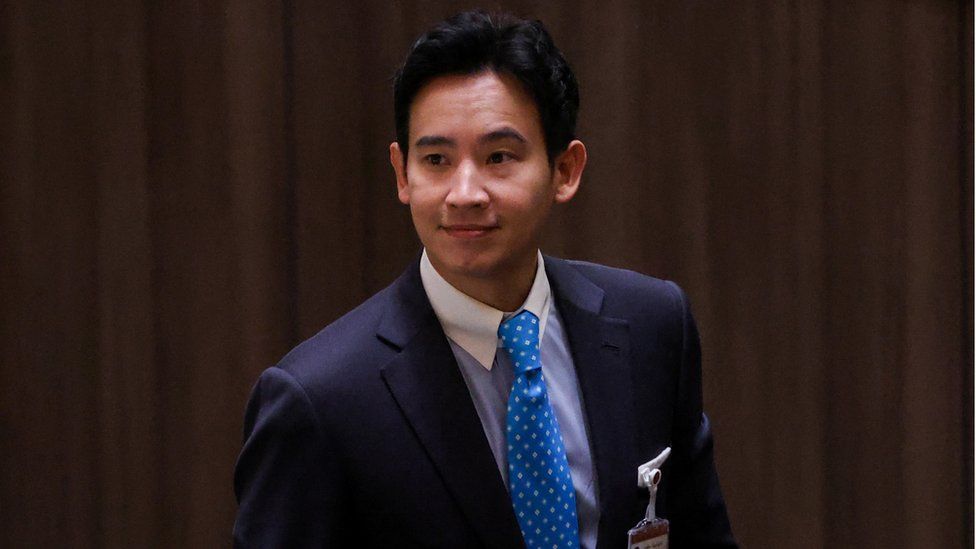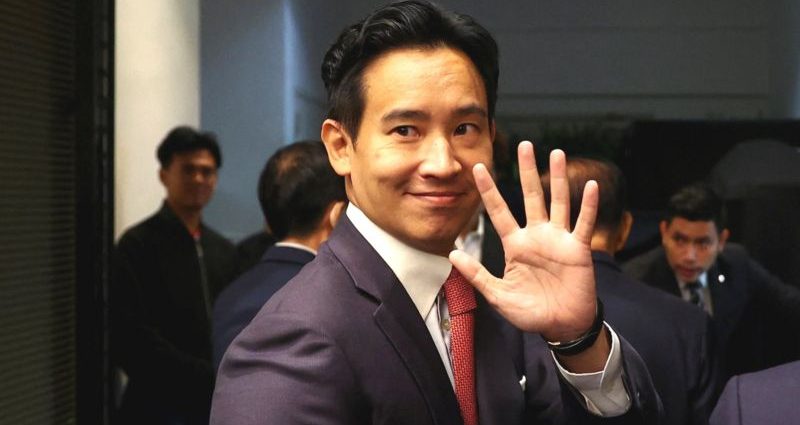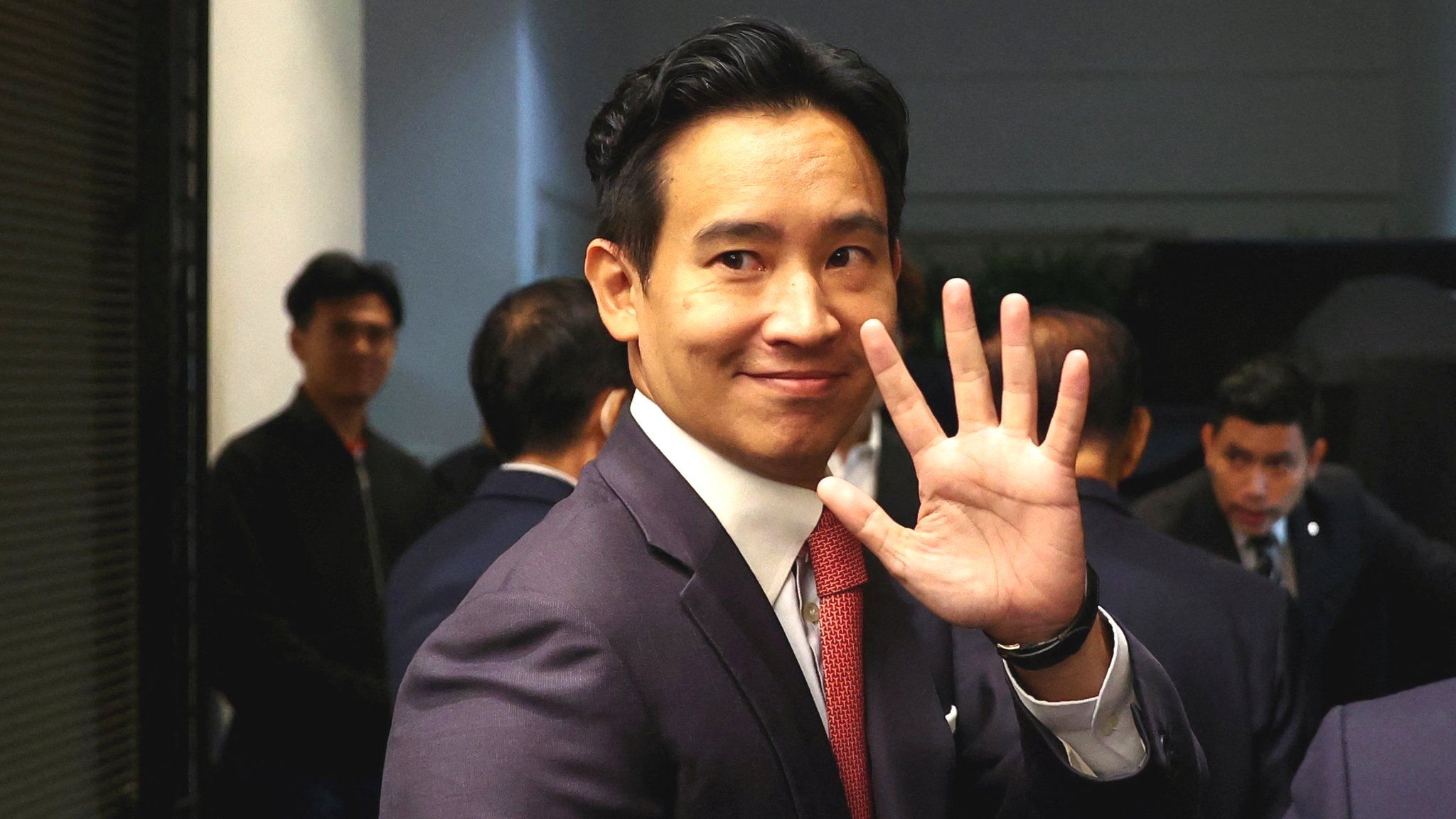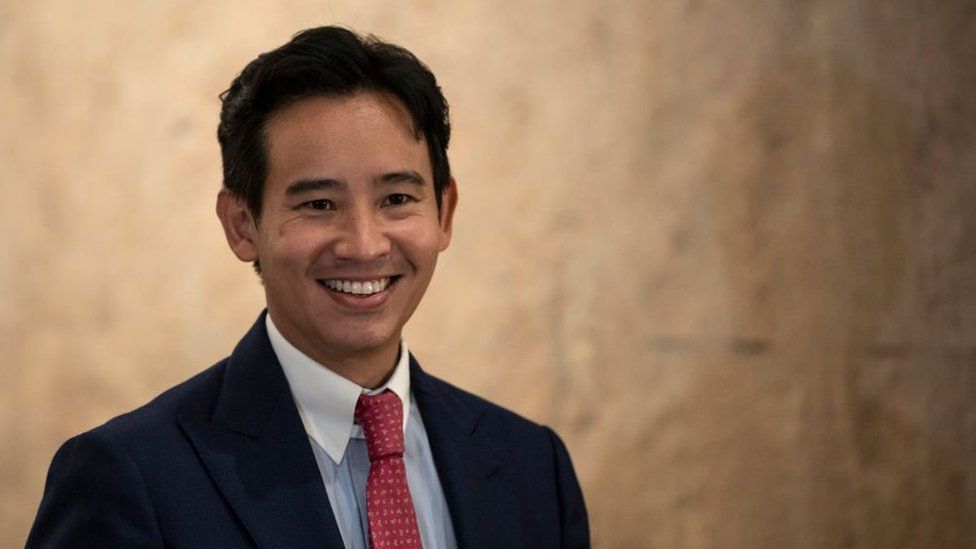
Thai reformist leader Pita Limjaroenrat has been suspended from parliament, further weakening his already slim chances of becoming prime minister.
Thailand’s Constitutional Court issued the order after agreeing to hear a case against the Move Forward party leader.
It will decide whether he should be disqualified from parliament for owning shares in a now defunct media company,
If disqualified, he can still run for the premiership, but is unlikely to receive enough votes to win.
Acknowledging the court’s order in parliament, Mr Pita said that he will stop working until the court rules on his case. “I would like to ask my fellow parliamentarians to use the parliament to help the people. I think Thailand has changed and will never be the same since 14 May. The people have won halfway, there’s another half to go. Even though I haven’t got to work, I’m asking my fellow parliament members to take care of the people.”
Move Forward said the suspension will not affect Mr Pita’s nomination. In an Instagram post after the ruling, he acknowledged that he was unlikely to secure the necessary votes to become prime minister.
The 42-year old was due to contest a parliamentary vote on Wednesday after failing to secure enough votes last week to become premier.
Mr Pita needs the votes of more than half of the 749 members in parliament’s two chambers to become prime minister. Last week, he only secured 324 votes, 51 short of the required 375.
But he always faced an uphill battle, as there was little evidence that enough of the 249 unelected senators in the upper house would support him. The senators were were installed by the leaders of a 2006 coup as a brake on any democratic outcome that the military and royalists were uncomfortable with.
The Harvard graduate and former tech executive led his party to election victory in May, running on the promise of major reforms, including a pledge to amend lese-majeste, Thailand’s strict royal defamation laws.
Move Forward is popular among young Thai voters who hope to end nearly a decade of conservative military rule.
Art Chaturongkul, a 39-year-old living in Bangkok, said he and fellow supporters are deeply concerned as they see Mr Pita as representing their voices in the parliament.
“I’m filled with mixed emotions. Utter rage, frustration, and disappointment. It feels like a setback to the democratic process,” he told the BBC.
Move Forward has formed a coalition government with seven other parties, including Pheu Thai, the second most popular party.
Many young voters switched to voting for Move Forward because Pheu Thai had been unwilling to rule out doing deals with the military.
Pro-establishment campaigners have sought to block Mr Pita from taking the reins of power after the shock election results in May.
Two cases have been filed against him in the conservative-leaning Constitutional Court.
The other complaint claims Move Forward’s proposal to amend lese-majeste laws – which have seen hundreds of critics of the monarchy jailed – amounts to an attempt to an overthrow Thailand’s entire political order.
The latest verdict is not the first controversial ruling by the Constitutional Court. In the 2019 elections, Future Forward – the predecessor to Move Forward – was dissolved by the court after it was found to have violated electoral rules.
Since 2008, it has also dismissed three PMs aligned with former premier Thaksin Shinawatra, who was toppled by a 2006 coup.
Ironically Pheu Thai – which has been on the receiving end of nearly all of the Constitutional Court’s rulings -is now poised to benefit from this latest ruling against its coalition partner.
It is well known that there is no love lost between Pheu Thai and Move Forward, particularly as the former has taken the latter’s mantle as a champion of democracy



